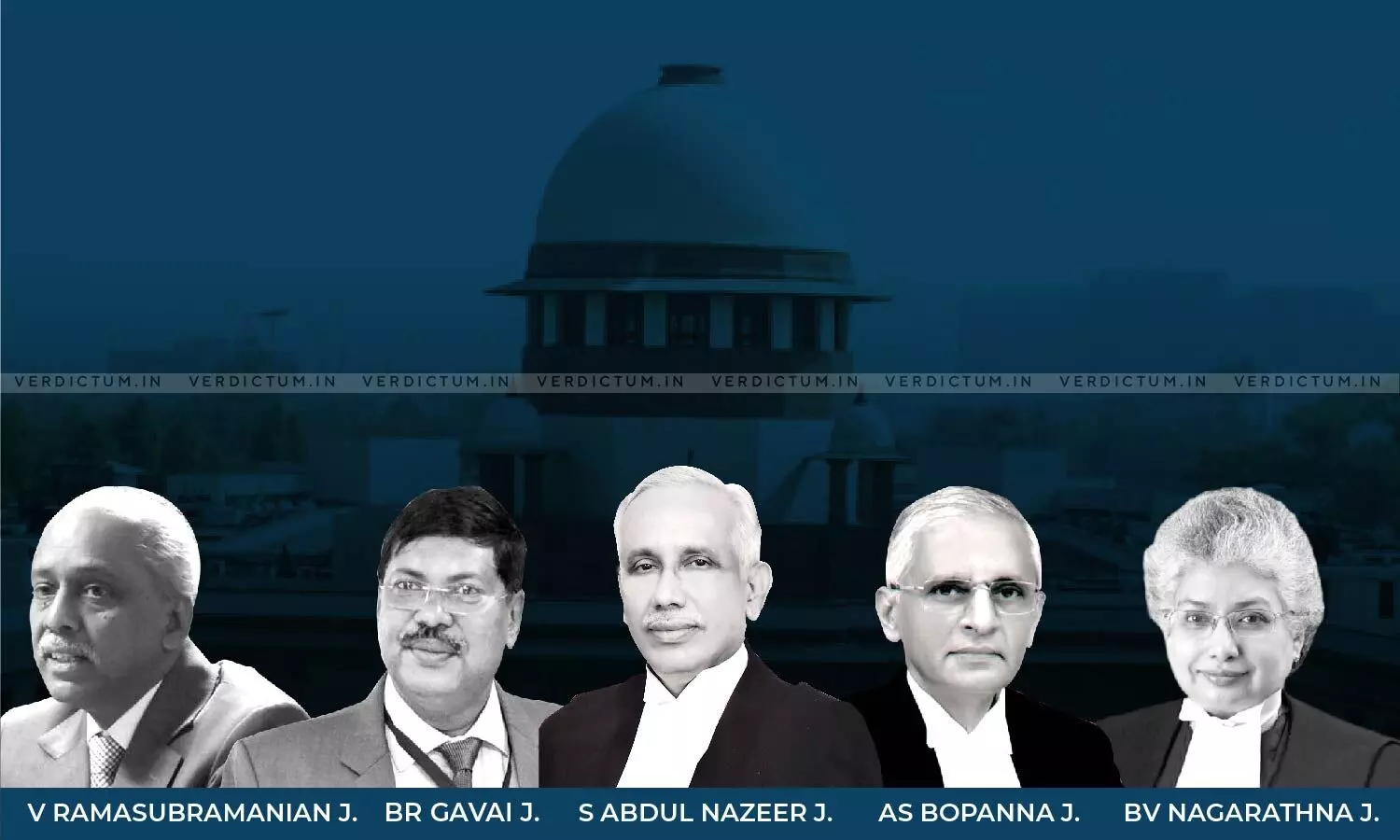
PM Or CM Doesn’t Have Disciplinary Control Over Members Of Council Of Ministers: Constitution Bench
 |
|The Supreme Court has observed that the Prime Minister or the Chief Minister does not have disciplinary control over the members of the Council of Ministers.
The Constitution Bench’s majority Judgment authored by Justice V Ramasubramanian noted thus “The Prime Minister or the Chief Minister does not have disciplinary control over the members of the Council of Ministers. It is true that in practice, a strong Prime Minister or Chief Minister will be able to drop any Minister out of the Cabinet. But in a country like ours where there is a multiparty system and where coalition Governments are often formed, it is not possible at all times for a Prime Minister/Chief Minister to take the whip, whenever a statement is made by someone in the Council of Ministers.”
The bench made this observation while holding that a statement made by a Minister even if traceable to any affairs of the State or for protecting the Government, cannot be attributed vicariously to the Government by invoking the principle of collective responsibility.
The five-judge Constitution bench headed by Justice S A Nazeer and comprising Justice AS Bopanna, Justice BR Gavai, Justice V Ramasubramanian and Justice BV Nagarathna was dealing with the issue of freedom of speech and expression of public functionaries.
Attorney General R. Venkataramani and Senior Advocate Aparajita Singh appeared as amicus curiae, Advocate Kaleeswaram Raj appeared the petitioner in the special leave petition and Advocate Ranjith B. Marar appeared for the person who sought to intervene/implead.
The majority opinion has been rendered by Justice V Ramasubramanian being concurred by three other judges while an alternative opinion, dissenting on a few points has been authored by Justice BV Nagarathna.
On the question of whether restrictions on the right to free speech be imposed on grounds not found in Article 19(2) by invoking other fundamental rights, the bench observed that additional restrictions not found in Article 19(2), cannot be imposed.
“The grounds lined up in Article 19(2) for restricting the right to free speech are exhaustive. Under the guise of invoking other fundamental rights or under the guise of two fundamental rights staking a competing claim against each other, additional restrictions not found in Article 19(2), cannot be imposed on the exercise of the right conferred by Article 19(1)(a) upon any individual.”, the bench observed.
The bench was unanimous on the larger question of putting additional restrictions on freedom of speech and expression of high political functionaries.
Justice Nagarathna agreed that there should not be additional restrictions on freedom of speech and expression of high public functionaries however she differed with four other judges of the bench on the issue whether the government can be held liable for a statement made by a minister.
She said the government can be held "vicariously" liable for the disparaging statements made by individual ministers.
She also said that hate speech denies human beings the right to dignity.
“Equality, liberty and fraternity are the foundational values embedded in the Preamble of our Constitution. ‘Hate speech’, in the sense discussed hereinabove, strikes at each of these foundational values, by marking out a society as being unequal. It also violates fraternity of citizens from diverse backgrounds, the sine-qua-non of a cohesive society based on plurality and multi-culturalism such as in India that is, Bharat.”, Justice BV Nagarathna observed.
She noted that it is for the Parliament to enact legislation or code to restrain, citizens from making disparaging or vitriolic remarks against fellow citizens.
“It is for the Parliament in its wisdom to enact a legislation or code to restrain, citizens in general and public functionaries, in particular, from making disparaging or vitriolic remarks against fellow citizens, having regard to the strict parameters of Article 19(2) and bearing in mind the freedom under Article 19(1) (a) of the Constitution of India.”, Justice Nagarathna observed.
She further added that it is also for the respective political parties to regulate and control the actions and speech of its functionaries and members.
Cause Title- Kaushal Kishor v. State of Uttar Pradesh & Ors
Click here to read/download Judgment